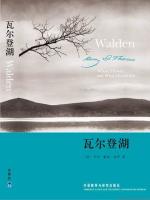Book Review: Walden
Stephen Curry
Henry David Thoreau’s "Walden Lake" was published in 1854.
Although this book describes Thoreau’s two years spent in a forest
cabin, people usually regard it as a magazine for personal freedom and
consciousness. On July 4, 1845, Thoreau walked into the woods a few
miles from downtown Concord, Massachusetts where he lived most of his
life. He wanted to strip his life completely. After building a 10-foot
by 15-foot cabin, he led an idyllic life of walking, reading, bird
watching, writing and simple life. He planted some beans and sold them
on the market to make up for some costs. For most people, this
concept is so unfamiliar that it seems to be either a waste of time
disruptive. However, Thoreau felt that he was richer than anyone he
knew, had all the material things he needed, and had time to enjoy them.
Thoreau also has friends and family in Concord, but it is like a prison,
enslaved by materialism and stereotypes, and people do not know where
they are. He wrote: "Most people live in calm despair." His
time at Walden is a conscious practice, and modern self-development is
called "descripting". He wanted to restore his completely free
thought at birth, but he suspected that this thought was distorted by
"traditional wisdom" and prejudice in his growth. Walden
Lake continues to be attractive to those seeking more. Many of these
ideas and concepts have entered the public consciousness and become one
of the important revelations of contemporary personal development
writers. "Walden Lake" is also at the forefront of the times
in terms of environmental sensitivity. It is worth saving because of
nature itself, but for a carefully observed life, nothing is more
educational than trees, water and animals. In a classic confession, he
said: "I finally found the other half: I fell in love with a bush
oak tree." What he sees in nature is always irrelevant to what he
sees in humans: "If this is the result of human self-salvation, and
all the grasslands on the earth are abandoned in the wilderness, I will
be very happy." A railway passed through the other end of Walden
Lake, and the busy people coming and going from the train made Thoreau
happy and fascinated. Technological progress reflects the glory of the
country - really? "People think it's important for countries to
have businesses, export ice, talk by telegram, and ride horses at 30
miles per hour... but we should live like baboons or humans. It's a
little uncertain." This is contrary to the obsession with
innovation and novelty, and is also a feature of today's culture.
Thoreau abandoned Benjamin Franklin's heroism of working hard on his
own. For him, social status is not important, and a prosperous life is
more like something that can only be seen under the gift of nature,
rather than something to achieve. Thoreau did not "do
anything" when he was in his 20s. Work is just to buy time to read,
write and enjoy nature. This does not mean that we have to live in the
hut and sow. Thoreau's forest symbolizes the abundance of nature. When
we decide to be ourselves, nature provides everything. If we stay in the
"village" of our thoughts and are afraid of what the next
person will say about us, we will only see evidence of lack,
insignificance and limited vision. The sentence he often quotes about
staying unique is: "If a person does not keep up with his
companion, it may be because he heard a different drumbeat." Let
him follow the music he heard, no matter how far it is. "
"Walden Lake" is a free spirit brainstorming, with a deep
understanding of classical literature, oriental religion, knowledge of
Indians and nature itself, outlined in a beautiful body and tranquil
background. This book invites readers to become Thoreau's companions,
enjoy the woods and Walden Lake like him, and enjoy his comments on
people and society.



 京公网安备 11010802032529号
京公网安备 11010802032529号